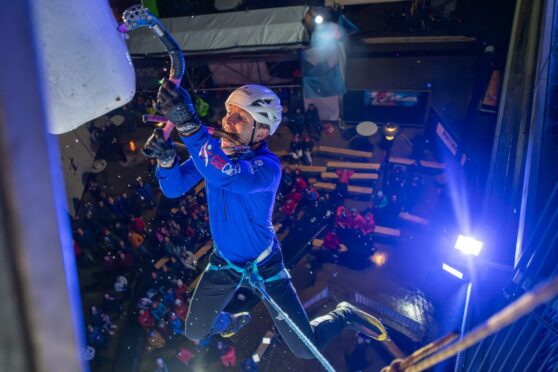
In a converted church in Glasgow, a growing community could be creating the next generation of Scottish Olympians.
A specially-built, world-class facility at the Glasgow Climbing Centre is the base for the GB ice climbing team to practice dry tooling, where athletes take on gruelling rock face challenges using ice axes and crampons.
The sport’s elite have gathered in Cheongsong, South Korea this weekend, where a number of Scots climbers are taking part in the first round of this year’s World Cup, with eyes on ice climbing potentially being added to the Winter Olympics.
The team has gone from strength to strength thanks to the work of team captain Willis Morris and fellow climber Caitlin Connor.
GB ice climbing team
“Previously it was just me and Caitlin competing and now in the UK because of the new facility, because of the drive, we’ve had multiple selection events where everybody earned their place at this competition,” Willis, 29, said.
“It’s quite impressive that the UK has 12 athletes here, which is a first. Other than South Korea, we’re the only ones that have a full team this year.
“It’s pretty crazy to see the leaps and bound the GB team is having and we’re starting to really make a dent, wining medals. We’re not underdogs anymore, we’re one of the big forces.”
Willis started climbing aged ten and made a name for himself scaling some of the world’s toughest inclines. Coaching Caitlin, he was drawn into the world of dry tooling competitions and they’ve become like brother and sister.
“It feels a lot more serious when you’re further away from home,” said Caitlin, 21, from Cambuslang, as the climbers relaxed in their South Korean hotel.
“We’re quite used to travelling for a short weekend here and there, but when you’re going away a couple of days beforehand to get used to jet lag it does feel a bit different.
“It’s very difficult and it’s an individual sport, but we are a team. We all help each other and train together. If you enjoy the sport and enjoy competing and training, then as long as you’re having fun you’re winning.”
Olympic potential
The younger climbers in the team may have extra incentive with ice climbing potentially being brought into the 2030 Winter Olympics at the French Alps.
“It’s realistically on the cards,” Willis said. “The French are powerhouses, they’ve got an amazing team so they’re very likely to want the sport.
“After Toby Roberts winning a climbing gold medal in the Summer Olympics there’s a drive to prove we can do that too.
“The last couple of years we’ve really upped our game with multiple titles and championships. Bringing youth along to senior World Cups and competing with that level, it feels realistic for us to actually have a fighting chance for a medal if it was to go Olympic.
“For me, being there as a coach or even bystander cheering on someone that maybe started because they watched us now, would be a pretty proud moment.”
The youngest representing GB in South Korea is Tabitha O’Caroll, 15, who started out at rock climbing classes at the Glasgow Climbing Centre and her potential was spotted.
“It’s really exciting that in the future maybe I could compete at Olympic level,” she said.
“Before my first competition, I’d never even been abroad. It’s so much fun coming away with all my friends and role models.
“Everyone on the team is very good at what they do. It’s great seeing them climbing and learning from them. They’ve been very welcoming.”
At the other end of the scale is the eldest member of the team, 58-year-old Ken Pallister.
A rock climber and mountaineer for 30 years, in 2022 he did his first dry tooling competition and fell in love with it.
“It may be slightly too late for me, but I think as a sport in the Olympics, it would be fantastic,” he said.
“All the athletes put on a good show. It’s three dimensional, dynamic moves with axes and crampons, and it’s really cool to watch. If it gets in it’ll be awesome.
“It’s inclusive. Anyone can do it. At the training facility here in Korea, we had five or six youths between 15 and 18, but at the same facility several people in their 50s.”
For now, focus is on the World Cup where the team are hoping to triumph for GB and continue the sport’s growth.
“It’s still seen ever so slightly as a dark art,” Caitlin said. “We’ve done as much as we can to get away from that and have people see it as a normal sport.
“As it grows and evolves, that opens the world up a little bit more, like it has for rock and bouldering, on the money and branding side of it.”
Ice climber community
Olympic or not, community and camaraderie has been built up around the sport, particular in the old Ibrox Church.
The Toolbox, Europe’s first commercial dry tooling facility, opened there in October after demand swelled.
“A lot of us kind of grew up there,” said Willis. “We’ve built this community within Glasgow that’s huge and it’s a social hub.
“We’ve had foreign teams coming there to train, it’s quite an amazing place.
“Winter sports tend to be quite expensive and climbing is no different, especially at the elite end, but now it’s never been easier.
“In Glasgow you can turn up a complete beginner, borrow elite level kit from the facility and do an introduction session with world class athletes. It’s a massive reason we’ve had such success getting people into the sport.
“It’s a supportive and close-knit community. It’s amazing at competitions seeing world champions cheer on people that have just started.
“I taught Caitlin, now I see her teaching the other youths. We pass it on to next generation. It’s an amazing network, making an impact on the international stage.”

Enjoy the convenience of having The Sunday Post delivered as a digital ePaper straight to your smartphone, tablet or computer.
Subscribe for only £5.49 a month and enjoy all the benefits of the printed paper as a digital replica.
Subscribe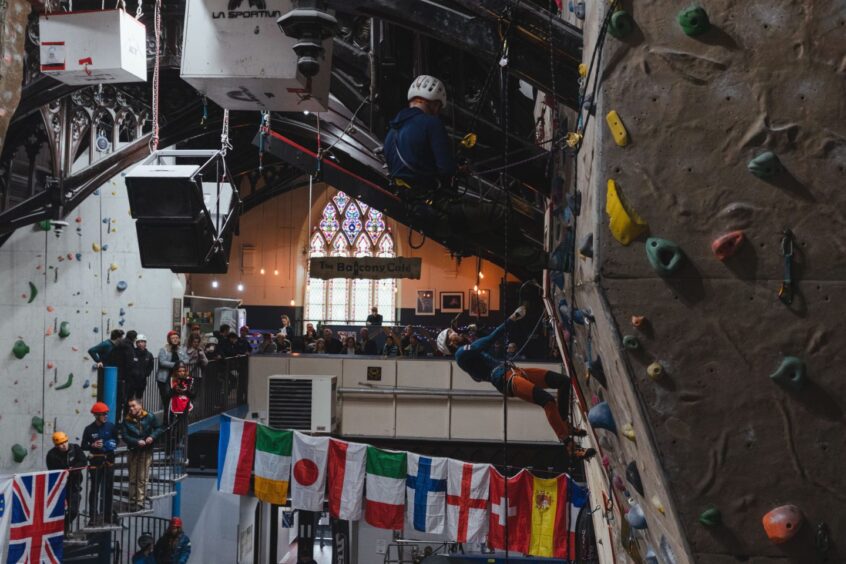 © UIAA/Luke Briggs
© UIAA/Luke Briggs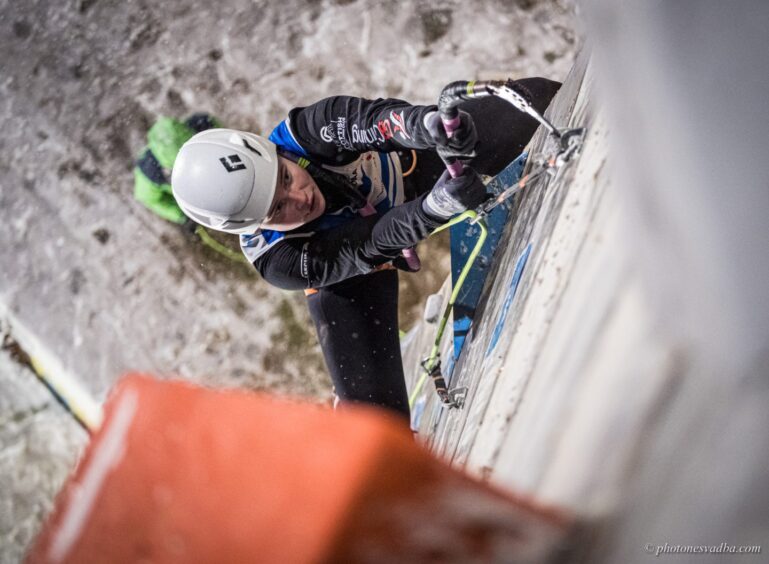
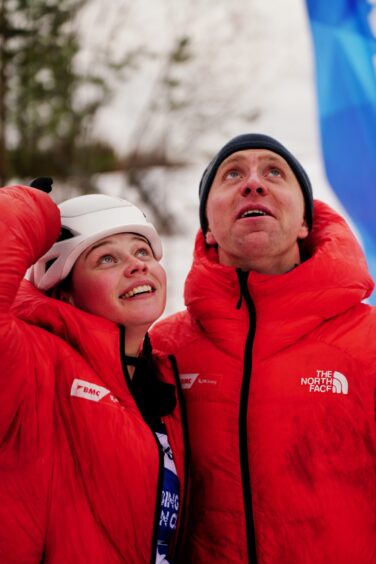
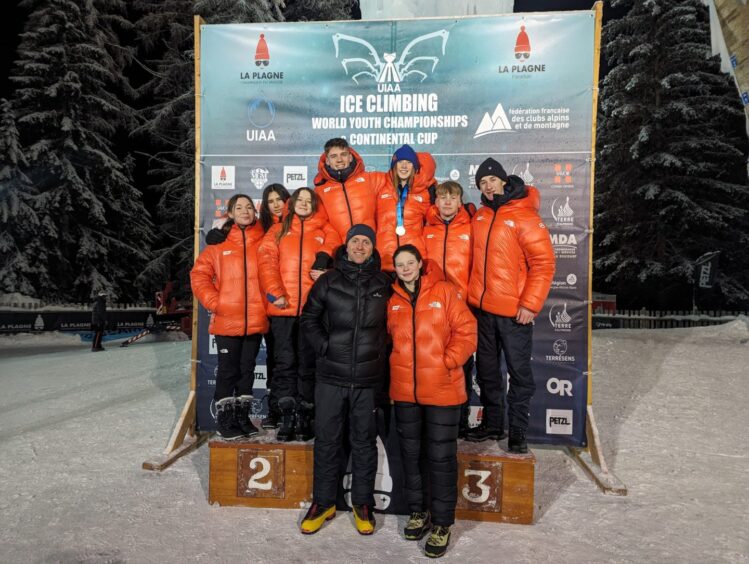
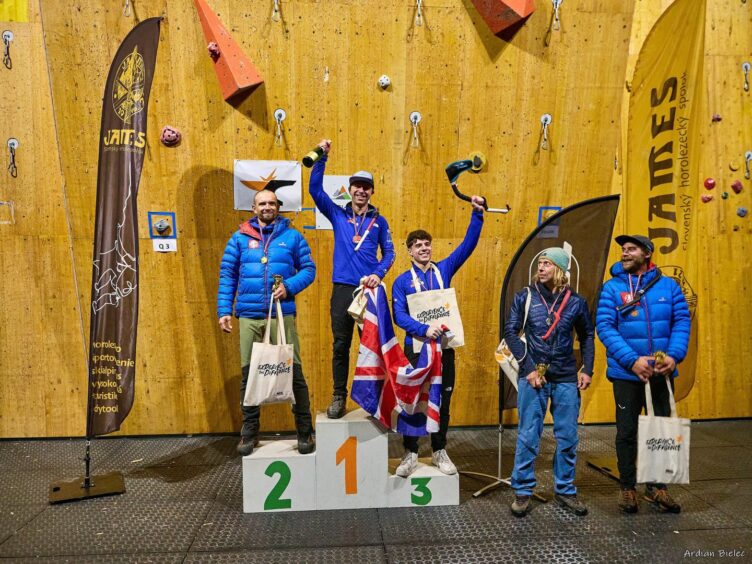
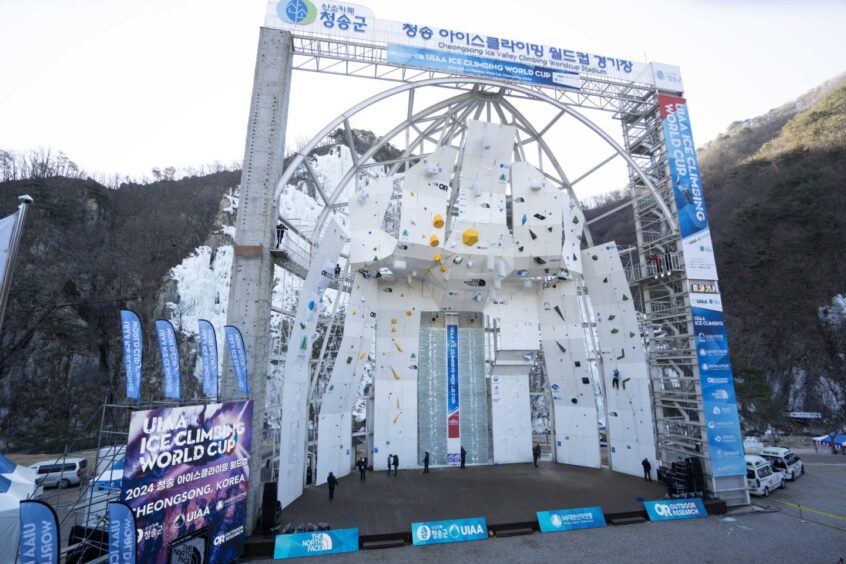 © UIAA/Reah Kang
© UIAA/Reah Kang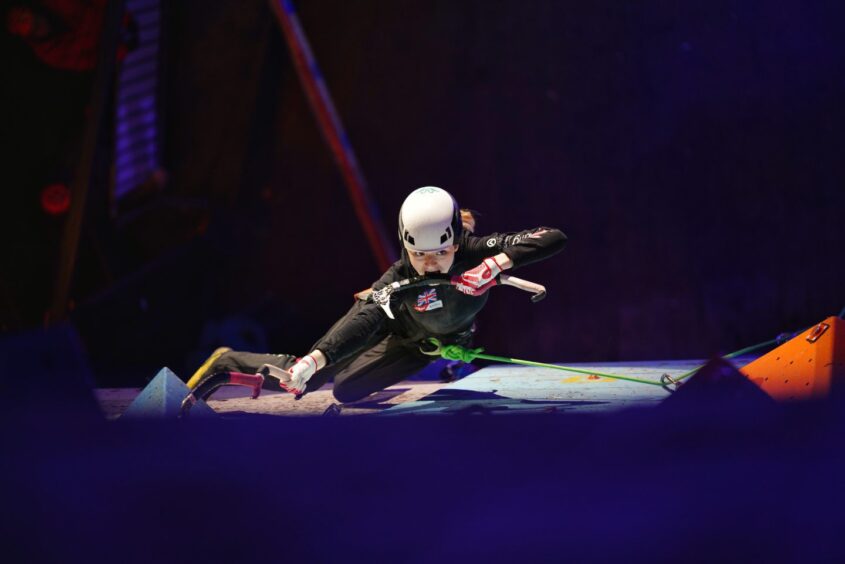
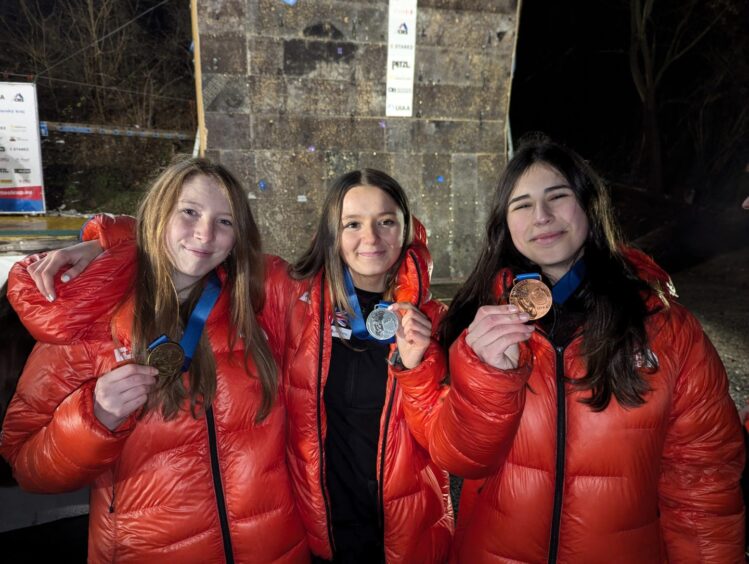
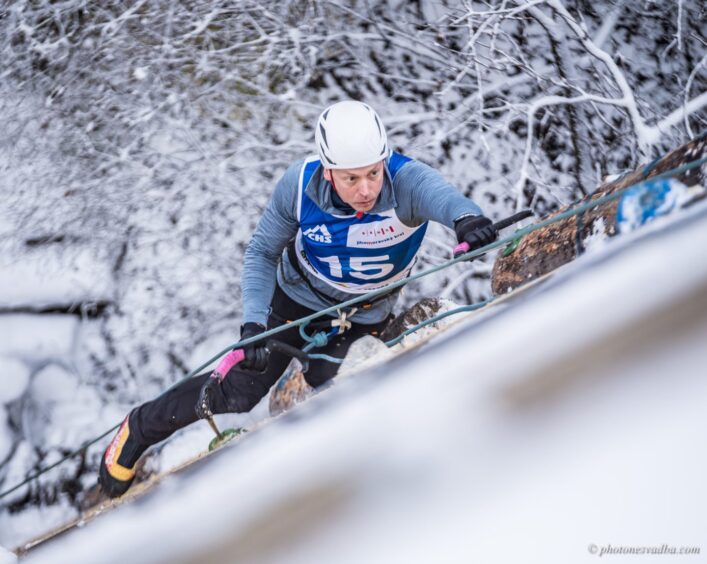
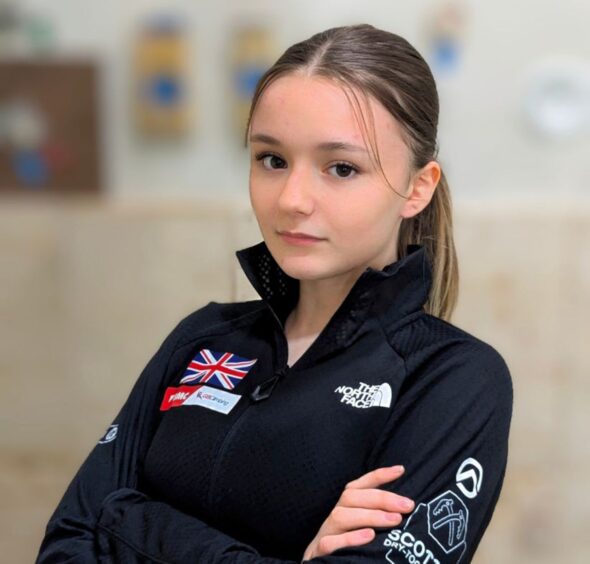
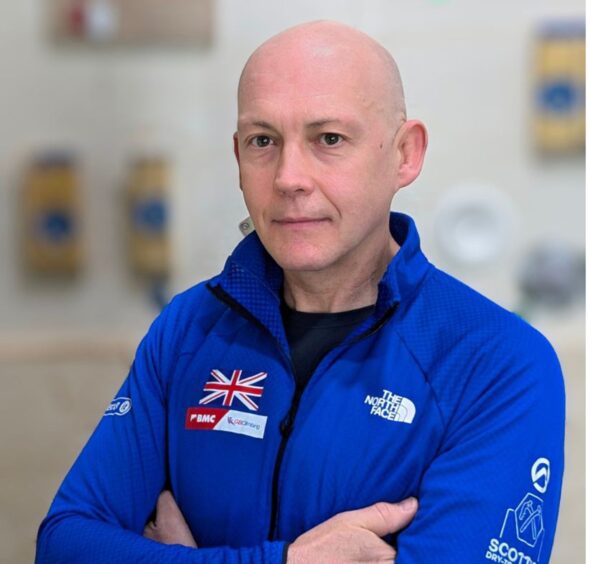
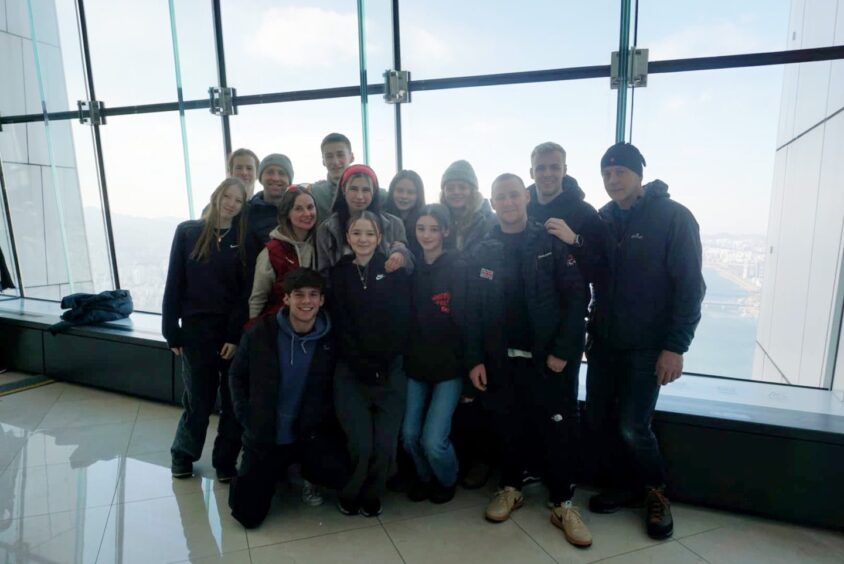 © Willis Morris
© Willis Morris